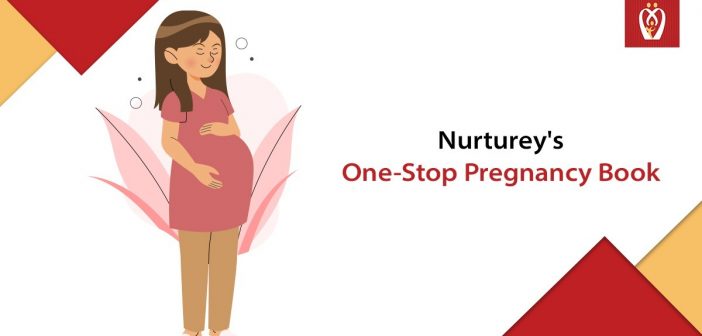Introduction
You come to know that you are pregnant, and your joy knows no bounds. But along with this happiness, there are a plethora of questions that haunt you. You might be curious about the early signs of pregnancy, the vitamins you should take, and whether you’ll experience any cravings. These are entirely reasonable concerns, especially when your body is undergoing so many changes. However, as a first-time mother, you cannot really go into this unprepared. Thus, we thought of writing this blog that would become your one-stop pregnancy book or guide.
The one-stop pregnancy guide
As you Start
Immediately as you get the good news, and after you have done the sharing, of course, book an appointment with your doctor. Your doctor will begin by going through your medical history. They will also inquire about your symptoms and your health in general. Urine and blood samples will be obtained during this first session. (These will be retaken during subsequent visits.) Bacteria, high sugar levels (which might be a symptom of diabetes), and high protein levels are all checked for in the urine testing. Blood tests are used to check for blood cell count, blood type, anaemia (low iron), and infectious disorders.
Other tests may also be performed at your first visit by the doctor. These may differ depending on your history and the probable risk of complications. Some of these tests include:
- Evaluation of the size and shape of your uterus.
- A cancer screening test.
- Ultrasound imaging to see your baby’s growth and position. This would be too premature at your first visit but gradually it will become a constant.
You will also be scheduled to have a prenatal checkup every four weeks after your first visit. After that, you will be seen every two weeks in months 7 and 8. And in the 9th month, the appointments will be weekly until you birth your baby. The doctor will weigh you, take your blood pressure, and test your urine at each visit.
After the 20th week, the doctor will listen to your baby’s heartbeat and assess the height of your uterus. Your baby’s gender reveal would also happen around this time. And while that is a choice for you to make as to whether you want to know the gender or not, do make sure that you enquire anything and everything about your stillborn’s health and growth.
Weight and pregnancy
Weight varies with every person and hence the weight gain for every mother would differ too. However, 25 to 30 pounds worth of gain is a usual standard. In case you were underweight at the time of getting pregnant, try and gain more than 30 pounds for a seamless, uncomplicated pregnancy. Similarly, in case you are overweight, you will also have to reduce your weight while gaining the baby’s weight to avoid complications later.
How much exactly is something that your doctor will guide you through.
Eating right for a healthy pregnancy
Eating a well-balanced diet is essential for a healthy pregnancy. Some dos and don’ts are mentioned below for your easy perusal.
- have at least 5 servings of fruits and vegetables per day. Fresh, frozen, canned, dry, or juiced foods can all be included in your daily quota; however, anything with extra salt or sugar should be avoided.
- Foods high in carbs (carbohydrates)- These foods provide a significant amount of energy, vitamins, and fibre. Bread, potatoes, breakfast cereals, rice, pasta, and noodles are among them. When feasible, choose wholemeal over refined, starchy (white) variants.
- Meat (avoid liver), fish, poultry, eggs, beans, lentils, and nuts are high in protein. Protein gives your baby the building blocks they need to grow.
- Every week, aim for two servings of fish. An oily fish, such as salmon, sardines, or mackerel, should be one of them. If you’re pregnant or attempting to conceive, you should avoid certain species of fish (shark, swordfish, and marlin).
- Milk, cheese, and yoghurt are examples of dairy products. Calcium and other vital elements are found in these items. Choose low-fat variants whenever possible, such as semi-skimmed, 1% fat, skimmed milk, low-fat yoghurt, and reduced-fat hard cheese. Choose unsweetened, calcium-fortified versions of dairy replacements like soya drinks and yoghurts.
Exercising in pregnancy
Gentle exercise is beneficial (and safe) for both you and your baby during pregnancy. It not only helps you keep a healthy weight, but it also helps your body prepare for labour. Keep exercising if you’re used to it, but only do what feels comfortable for your body and definitely don’t overdo it. If you’ve never exercised before or haven’t done so in a long time, avoid getting into a strenuous regime now.
Walking is usually the preferred form of exercising for pregnant women and so stick to it. Start with 10 minutes daily and then you can gradually increase your daily exercise time to 90 minutes. You can do the following exercises during pregnancy:
- Walking is a fantastic way to get some exercise. It’s not only free, but it’s also simple to implement into your daily routine. If you’ve never exercised before, this is an excellent way to begin.
- Running is fine if you’ve done it before. However, it is not a good idea to start running now if you are new to it.
- With moderate stretching and breathing methods, prenatal yoga will help you relax and relieve bodily tension.
- Low-impact movements are included in prenatal aerobics sessions (including online classes).
- Exercises for the pelvic floor and abdominal muscles are extremely beneficial during pregnancy. Try to incorporate them into your routine because they provide numerous benefits, including muscle and joint strengthening.
Vitamins and supplements during pregnancy
A healthy, diverse diet will provide you with the majority of the vitamins and minerals you require. When you’re pregnant, however, you should also take a folic acid vitamin. It’s also crucial to take a vitamin D supplement on a daily basis. It’s advisable to begin taking folic acid as soon as you begin trying for a baby or realize you’re pregnant. Until the conclusion of your first trimester, you’ll need 400 micrograms (mcg) every day (12 weeks). You should take a daily vitamin D supplement containing 10mcg whether you are pregnant or breastfeeding.
How much work stress can I take?
Each person’s working hours during pregnancy differ. Your job and work environment have a significant impact. Radiation, lead, and other metals such as copper and mercury, for example, can be detrimental to your child’s health. If your job is active, you may not be able to work as long. Working at a desk isn’t regarded as harmful to your child. You should not, however, place a computer on your stomach or uterus. Your general health also influences the length of time you work. You may be on bed rest and unable to work if you are at risk of certain issues or preterm delivery.
Should sex be done during pregnancy?
It’s quite safe to have sex when pregnant. However, if you have any concerns or are at risk for complications, consult your doctor. When a woman is pregnant, her level of interest in sex changes. You may need to experiment with different positions as you grow, such as lying on your side or being on top.
Things to avoid during pregnancy
There are a few precautions you should take when you are pregnant. First, take note of the dangers listed below. Then, if you require assistance, speak with your doctor.
- Don’t smoke or hang out with folks who do. Smoking increases your chances of having a miscarriage, giving birth prematurely, having a baby with low birth weight, and other health issues.
- Don’t take any drugs. Miscarriage, preterm birth, and birth abnormalities are increased by cocaine, heroin, marijuana, and other substances. Your child may be born hooked to the drug you’ve been abusing. The condition is known as newborn abstinence syndrome. It has the potential to cause serious health problems for your child.
- Don’t consume alcoholic beverages. Alcohol consumption is the major cause of preventable birth defects such foetal alcohol syndrome.
- Don’t eat red meat that is raw or undercooked. Toxoplasmosis, a condition that can cause birth abnormalities, is a possibility.
- Don’t be a douchebag. Your vaginal area does not need to be cleansed in addition to regular bathing. Douching causes the beneficial bacteria that maintain your vaginal area clean to become disrupted.
When to call your doctor?
Contact your doctor right away, if you experience any such symptoms.
- Your vaginal discharge contains blood or fluid.
- Swelling of the face or fingers that occurs suddenly or unexpectedly.
- Headaches that are severe or persistent.
- Nausea and vomiting won’t stop.
- Dizziness.
- Dim or hazy vision
- Lower abdominal cramps or severe discomfort.
- Fever or chills.
- Your baby’s emotions have changed.
- When you urinate, there is less urine or a burning sensation.
- An infection or sickness.
- Any other underlying symptom
Nurturey’s one-stop pregnancy book
Parenting is a journey that starts long before you give birth to your child. During pregnancy, expectant parents normally form a strong emotional relationship with their babies. The same continues, however, since the child has some needs and also develops a personality of their own once they are out of the womb, being the all-provider can be a bit tough.
Nurturey’s PinkBook is the smartest digital upgrade for the NHS red book. It is intended for parents of young children as well as pregnant mothers. Pinkbook’s intuitive tools help you feel supported, informed, and empowered as you navigate the journey of your child’s health and pregnancy.
It allows you direct access to your child’s medical records and reliable advice from the NHS system. This content has been specially selected for your stage in the parenting process. You can also link your online GP account to Nurturey’s online NHS health services. This allows you to view both your child’s and your medical records. You can also schedule visits with your doctor for your children, pregnancy, and family.
You can also reorder medicines for yourself and your family through it. The PinkBook assists parents and pregnant women with their families and individual health requirements by providing timely warnings and access to reliable NHS assistance. If you are looking for a pregnancy book online, then this is your go-to.







